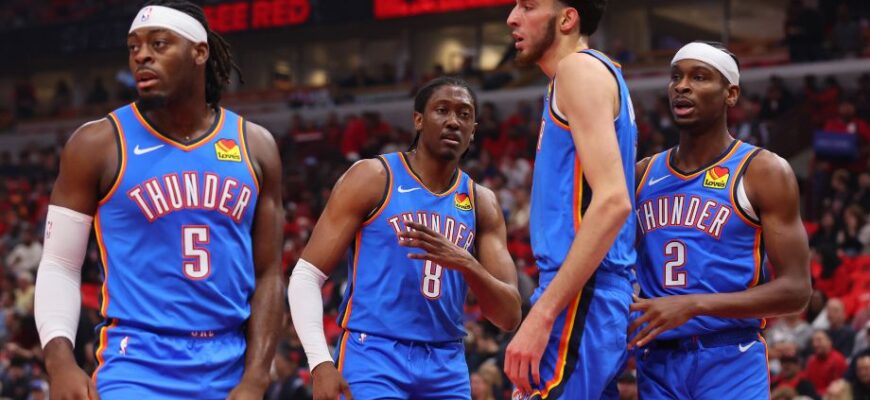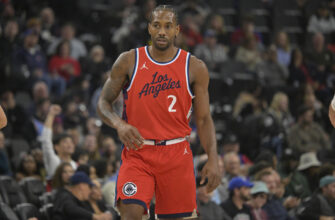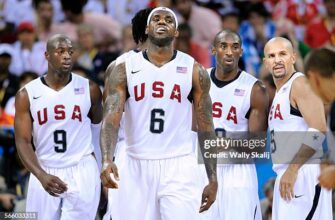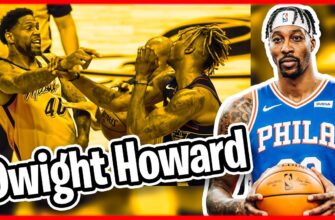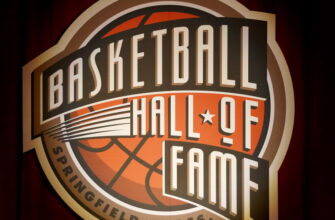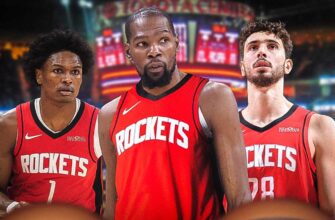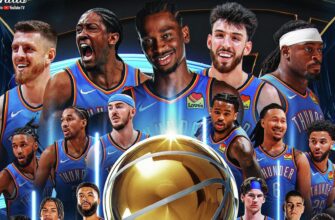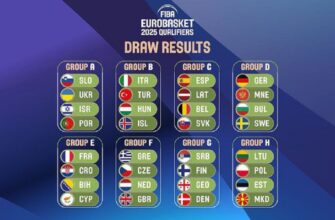For Oklahoma City Thunder executive vice president Sam Presti, a photograph of legendary football coach Bill Walsh, calmly preparing for a Super Bowl, serves as a constant inspiration. It represents preparedness, not just confidence. Yet, when his own moment of truth arrived before Game 7 of the 2025 NBA Finals against the Indiana Pacers, Presti chose a different path to find peace: playing his drums the night before the decisive game.
The music channeled the long journey of building and rebuilding the Thunder franchise. It echoed the hard-won lessons from the era of Kevin Durant, Russell Westbrook, and James Harden – lessons that profoundly shaped the construction of the championship-winning team centered around Shai Gilgeous-Alexander, Jalen Williams, and Chet Holmgren.
Presti is perpetually focused on construction, on building for the future. But drumming allows him to tap into a different mindset, a necessary balance to his analytical nature. This duality, accessing a `different part of your brain,` as Presti described it, is key to understanding why this iteration of the Thunder is fundamentally different from its predecessor.
Superficially, the parallels are striking. Both teams were young. Both featured a stylish, primary ball-handler (Gilgeous-Alexander now, Westbrook then). Both had a skilled, slender 7-footer (Holmgren now, Durant then). Both included a dynamic wing player known for their ability to attack the basket (Williams now, Harden then). The physical resemblances are so strong it might seem Presti scouted for doppelgangers. However, the critical difference lies in the intangible: this time, the focus was on humility over swagger.
The initial trio, brimming with competitive fire, ultimately outgrew the confines of one team, each seeking their own stage. Their ambition and egos fueled internal competition alongside external battles.
In stark contrast, the three stars who delivered Oklahoma City`s first NBA championship are defined by their willingness to share the spotlight. Their camaraderie is so genuine that they often pull teammates into post-game interviews. When Shai Gilgeous-Alexander received the Finals MVP award, he immediately brought Jalen Williams forward, describing him as a “one-in-a-lifetime player” and emphasizing that the award was “just as much my MVP as it is his.” This shared ethos permeates the team, on and off the court.
“Our togetherness on and off the court, how much fun we have, it made it feel like we were just kids playing basketball,” Gilgeous-Alexander reflected.
Indeed, they were remarkably young. This team became the youngest in nearly 50 years to claim an NBA title. Jalen Williams, at 24, was just 10 when the first Thunder “Big 3” fell to the Miami Heat in the 2012 Finals, too young to fully grasp the historical echoes. So young, in fact, that his first taste of alcohol was the championship champagne in the locker room celebration. It took veteran Alex Caruso, at 31, to show some of them how to open the bottles.
Presti, however, remembers the 2012 Finals vividly. That experience, and everything that followed, informed his deliberate approach to building this team differently. His office walls are adorned with numerous motivational phrases alongside the Bill Walsh photo: “CHARACTER IS FATE,” “TO BUILD IS IMMORTAL,” “AGILITY IS THE QUALITY OF AN OPTIMIST,” “POST TRAUMATIC GROWTH,” “HARDER BUT SMARTER,” “INFORM THE MUSIC.” The last phrase, inspired by a Fleetwood Mac documentary, reflects Presti`s fascination with the creative process and the stories behind it.
He considered what statement he would make if the team reached the pinnacle, always cautiously prepared but never getting ahead of himself, especially after a humbling Game 6 loss. Yet, his message on the championship stage was clear: “These guys represent all that`s good at a young age. They prioritize winning, they prioritize sacrifice… Age is a number. Sacrifice and maturity is a characteristic, and these guys have it in spades.”
Throughout the season, questions lingered about the Thunder`s youth. Could they withstand pressure? Would they falter against seasoned opponents? Their record-breaking point differential suggested dominance, but the playoffs test mettle differently. The 2012 team faced similar doubts; Durant, Westbrook, and Harden were young, and a decade of contention seemed inevitable. As former Thunder guard Reggie Jackson recalled, “I thought we`d be winning two or three championships. But our story didn`t go as expected.”
That year, they weren`t quite ready; the veteran Miami Heat, fueled by a previous Finals loss, were. Presti initially believed the optimal window would open when his stars reached their mid-twenties, following the San Antonio Spurs` model with Duncan, Ginobili, and Parker. This strategy prioritized long-term financial flexibility, leading to a measured contract offer for James Harden in 2012, slightly below the maximum. Harden, encouraged by established stars during the Olympics, sought to lead his own team with a full max deal. The $5 million difference, and the desire to avoid the luxury tax, coupled with the principle of sacrifice Presti was trying to instill, led to the trade.
On Sunday night, Presti repeatedly used the word “sacrifice,” highlighting a key lesson learned from the first era. Maturity is a characteristic, not solely tied to age. He had been too rigid in his previous adherence to age-based winning windows, a perspective challenged by the rapid maturation and selflessness of this current team. “They`re young, but their maturity, selflessness and true love for one another is really unique and special,” Presti told Scott Van Pelt. “The age is what it is. They`ve never let that define them.” This shift is reflected in newer mottos in his office: “IN ORDER TO BE EXCEPTIONAL, YOU HAVE TO BE WILLING TO BE THE EXCEPTION.”
Head coach Mark Daigneault, groomed by Presti over several years, understands this philosophy intimately. Presti discovered Daigneault on a college coaching staff and brought him into the Thunder organization to develop young players, eventually leading the G League team, the Blue. Daigneault cherished his time coaching the Blue, even in their humble facility – a former roller-skating rink near a dog food plant, a place notorious for its distinct smell. Promotion to the Thunder meant escaping that odor, but Daigneault later used the facility as a motivational tool, reminding the struggling 2021-22 team of the franchise`s origins and the foundation upon which they were building.
Presti`s office is filled with many sayings, but one favorite of Daigneault`s, from the movie `Poolhall Junkies`, resonates: “SOMETIMES THE LION HAS TO SHOW THE JACKALS WHO HE IS.”
The summer of 2019 marked the definitive end of the first Thunder era and the genesis of the second. Russell Westbrook was traded, following Paul George`s earlier trade request. The George trade brought back Shai Gilgeous-Alexander and a wealth of draft capital that fueled the rebuild. Presti didn`t foresee a future MVP in Gilgeous-Alexander, only a potentially very good player.
Presti recounted seeing Gilgeous-Alexander in the Thunder facility late one night after the Westbrook trade was finalized. Exhausted, he heard a ball bouncing and saw Gilgeous-Alexander practicing, notably not yet in Thunder gear. This image stuck with him, a symbol of Gilgeous-Alexander`s immediate dedication. Gilgeous-Alexander, hurt by being traded, channeled his feelings into work, a path he later reflected on, noting that focusing on his development and the team`s progress “worked out in my favor.”
This dedication is paired with a meticulous approach to presentation, a trait instilled by his mother. Shai Gilgeous-Alexander is known for his style, planning outfits well in advance. Yet, for the crucial Game 7, the desire to win superseded fashion, resulting in a simpler ensemble than planned. “All I wanted to do was win,” he stated, “so I didn`t even have time to put effort into that… I was just like, `Let`s just go win this thing.`”
Sam Presti finds his own space for reflection in a home office modeled after Henry David Thoreau`s cabin at Walden Pond. Growing up nearby, Presti studied Thoreau`s work. This room, devoid of technology, with bare walls and a desk overlooking a stream, serves as an antidote to the analytical intensity of his main office. It`s a place to think without overthinking, an escape from the mottos and architecture books. Quiet, spartan, and simple, it`s a space for fundamental building.
This time, the building was different. It aimed for longevity. He chose players who would grow together, fostering a culture of shared purpose and humility that culminated in a championship, hinting at the beginning of something built to last.

